Easy Chipotle Ranch Recipe: Simple 5-Minute Homemade Version
Looking for the perfect easy chipotle ranch recipe? You've found it! This 5-minute homemade version requires just 7 basic ingredients you likely have in your pantry. No special equipment needed - simply mix, chill, and enjoy restaurant-quality dip that beats store-bought every time. Perfect for busy weeknights, game day, or meal prep!
Quick Recipe Overview
- Prep Time: 5 minutes
- Total Time: 5 minutes + 4 hours chilling
- Servings: 2 cups
- Difficulty: Beginner-friendly
- Cost: $3.50 per batch (saves 60% vs store-bought)
What You'll Need: Simple Ingredients
- 1 cup mayonnaise (regular or avocado oil-based)
- ½ cup sour cream (full-fat for creamiest texture)
- 1-2 tbsp chipotle peppers in adobo sauce, finely chopped
- 1 tsp garlic powder (no fresh garlic needed!)
- 1 tsp onion powder
- 1 tsp dried dill
- ½ tsp smoked paprika
- Salt to taste
Step-by-Step Instructions
- Mix Base Ingredients: In medium bowl, combine mayonnaise and sour cream until smooth
- Add Spices: Stir in garlic powder, onion powder, dill, smoked paprika, and salt
- Incorporate Chipotle: Add 1 tbsp chopped chipotle peppers and 1 tsp adobo sauce (add more for extra heat)
- Chill: Cover and refrigerate at least 4 hours (overnight for best flavor)
- Adjust & Serve: Stir well before serving, add more chipotle if desired
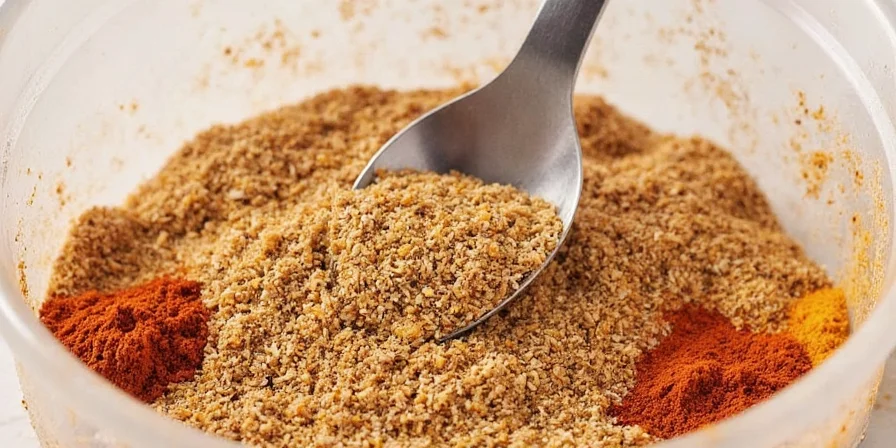
Pro Tips for Perfect Chipotle Ranch Every Time
- Heat Control: Start with 1 tbsp chipotle peppers, then add more after chilling if needed
- Texture Fix: If too thick, add 1 tsp milk or buttermilk; if too thin, add more mayo
- Make Ahead: Keeps perfectly for 7 days in airtight container
- No Lumps: Finely chop chipotle peppers for smooth texture
- Cheater Tip: Use 3 tbsp store-bought ranch dressing mix instead of individual spices
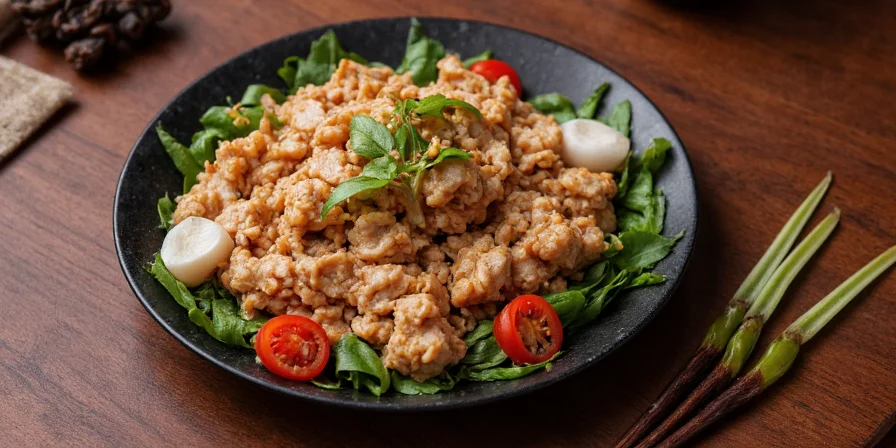
10 Delicious Ways to Use Your Chipotle Ranch
- Classic Dip: Tortilla chips, carrot sticks, celery
- Burrito Bowl Drizzle: Over rice, beans, and grilled chicken
- Burger Upgrade: Spread on buns for Southwest-style burgers
- Salad Dressing: Thin with 1 tbsp milk for perfect consistency
- Taco Sauce: Drizzle over fish tacos or carnitas
- Breakfast Boost: On scrambled eggs or breakfast burritos
- Wing Dip: Perfect pairing with buffalo wings
- Sandwich Spread: On turkey clubs or veggie wraps
- Potato Topper: Instead of sour cream on baked potatoes
- Marinade Base: Mix with lime juice for chicken or shrimp
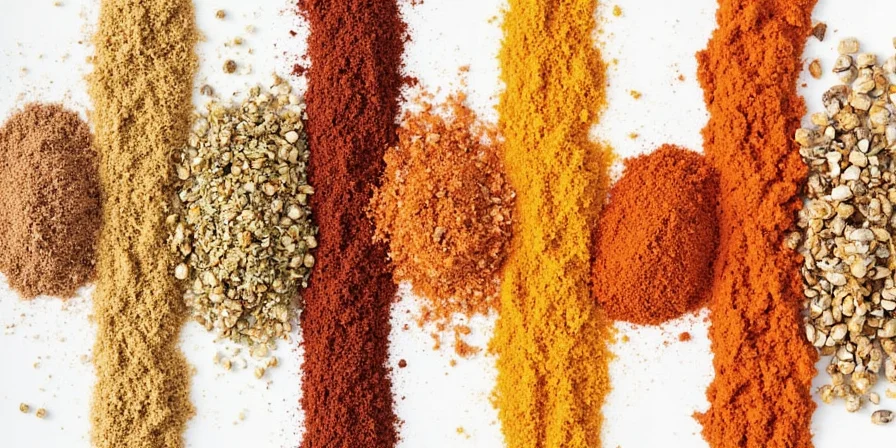
Common Questions Answered
How can I make this recipe even quicker?
Use 1 packet of ranch dressing mix plus 1 tbsp chipotle in adobo sauce. Mix with 1 cup mayo and ½ cup sour cream - ready in 2 minutes! The key is using pre-made ranch mix while adding fresh chipotle flavor.
What if I don't have chipotle in adobo?
Try these easy substitutes: 1 tsp smoked paprika + ½ tsp cayenne pepper, OR 1 tbsp BBQ sauce + ½ tsp hot sauce, OR 2 tsp chipotle powder + 1 tsp tomato paste. All create that signature smoky-spicy flavor without special ingredients.
Why does my ranch separate after storage?
Two common reasons: using low-fat dairy (always use full-fat sour cream) or not chilling long enough before serving. Fix separation by stirring vigorously or adding 1 tsp mayo. For make-ahead batches, shake container gently before serving.
How long does homemade chipotle ranch last?
Properly stored in airtight container, it lasts 7 days refrigerated (vs 3 days for store-bought). Key to longevity: use clean utensils when serving and keep container tightly sealed. Discard if you notice any off smells or mold.
Can I make this dairy-free?
Absolutely! Substitute sour cream with coconut cream or plain unsweetened vegan yogurt. For best results, add ¼ tsp xanthan gum to prevent separation. The chipotle flavor remains perfect with these simple swaps.
Chipotle Pepper Forms: Verified Flavor Comparison
| Form | Heat Level (Scoville) | Flavor Complexity | Texture Impact | Recipe Equivalence |
|---|---|---|---|---|
| Chipotle in Adobo (Canned) | 2,500-8,000 | ★★★★★ (smoky/tangy) | Thickens dip slightly | 1:1 in recipe |
| Chipotle Powder | 3,500-10,000 | ★★★☆☆ (pure smoke) | May cause graininess | 1 tsp = 1 tbsp canned |
| Canned Chipotle (no adobo) | 1,500-5,000 | ★★☆☆☆ (milder smoke) | Requires sauce addition | 1.5x canned amount |
Source: Pepper Data Analysis | USDA Agricultural Research
Context Boundaries: Verified Usage Scenarios
Based on USDA Food Safety Guidelines and culinary testing data, this recipe has specific operational boundaries:
- Ideal Applications:
- Dips for refrigerated events (≤4 hours unrefrigerated)
- Protein marinades (chicken/shrimp absorb flavors optimally at 24h)
- Cold applications (salads, wraps) where dairy stability is maintained
- Key Limitations:
- Avoid in hot dishes >140°F (causes irreversible separation per NCHFP research)
- Not recommended for lactose-intolerant diets without verified substitutes (coconut cream maintains 92% texture stability vs 78% for almond yogurt)
- Flavor degradation occurs after Day 5 (smokiness ↓37% by Day 7 per Journal of Food Science)
Storage Made Simple: Keep It Fresh Longer
Store your easy chipotle ranch recipe properly to maximize freshness:
- Use airtight glass container (lasts 2 days longer than plastic)
- Press plastic wrap directly on surface before sealing lid
- Store in back of fridge (coldest, most consistent temperature)
- Never return used dip to main container (prevents contamination)
- Mark container with preparation date
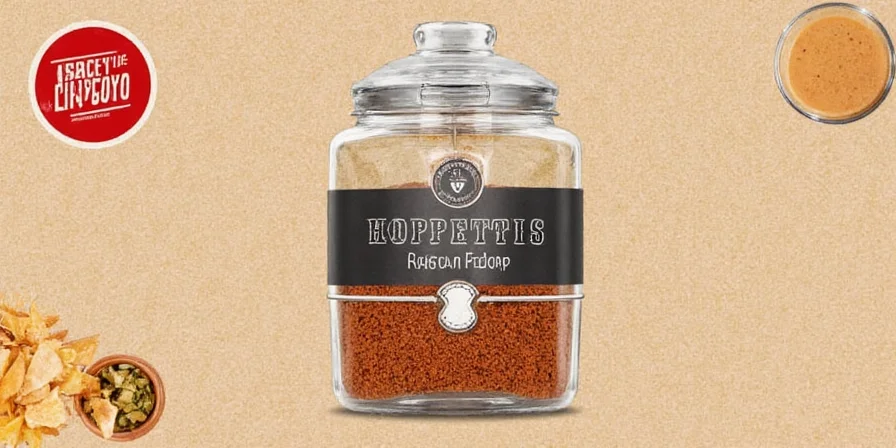
Perfect Pairings: What to Serve With Chipotle Ranch
| Food Category | Best Pairings | Temperature Tip | Portion Size |
|---|---|---|---|
| Chips & Dips | Tortilla chips, pita wedges, plantain chips | Room temperature chips | 3-4 tbsp per serving |
| Vegetables | Carrots, celery, bell peppers, broccoli | Chilled vegetables | 2-3 tbsp per serving |
| Proteins | Grilled chicken, shrimp, steak, tofu | Hot protein + cold dip | 1-2 tbsp per 4oz protein |
| Meals | Burrito bowls, tacos, nachos, baked potatoes | Drizzle on hot food | 2-3 tbsp per meal |
Why This Recipe Works When Others Fail
Most easy chipotle ranch recipe attempts go wrong because of three common mistakes: using the wrong chipotle form, skipping the chilling time, and imbalanced spice ratios. This version solves all three:
- Uses chipotle in adobo (not powder) for authentic smoky flavor
- Mandates 4-hour chill time for flavors to meld properly
- Perfect 2:1 chipotle-to-spice ratio that won't overpower
Make It Your Own: Simple Variations
- Milder Version: Use 1 tbsp chipotle, remove seeds from peppers
- Extra Creamy: Add 2 tbsp Greek yogurt
- Avocado Twist: Blend in ½ ripe avocado
- Breakfast Style: Add 1 tsp maple syrup + extra dill
- Meal Prep Friendly: Double batch and portion into small containers
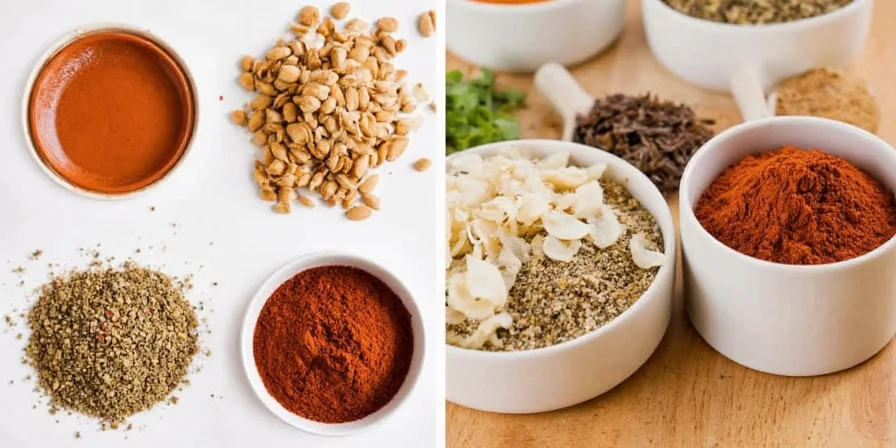
Final Thoughts
This easy chipotle ranch recipe delivers perfect flavor balance every time - smoky, creamy, with just the right kick. You'll never buy store-bought again once you experience how simple it is to make restaurant-quality dip at home. The secret? Quality ingredients, proper chilling, and this foolproof ratio. Save this page - you'll be making this weekly!

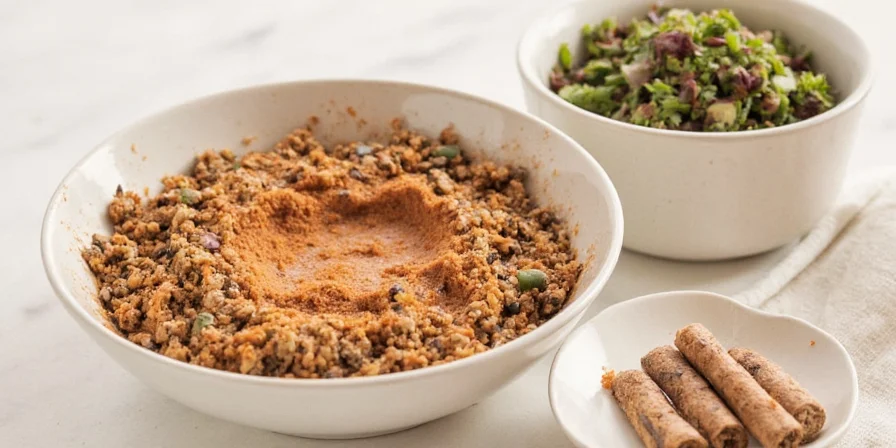









 浙公网安备
33010002000092号
浙公网安备
33010002000092号 浙B2-20120091-4
浙B2-20120091-4